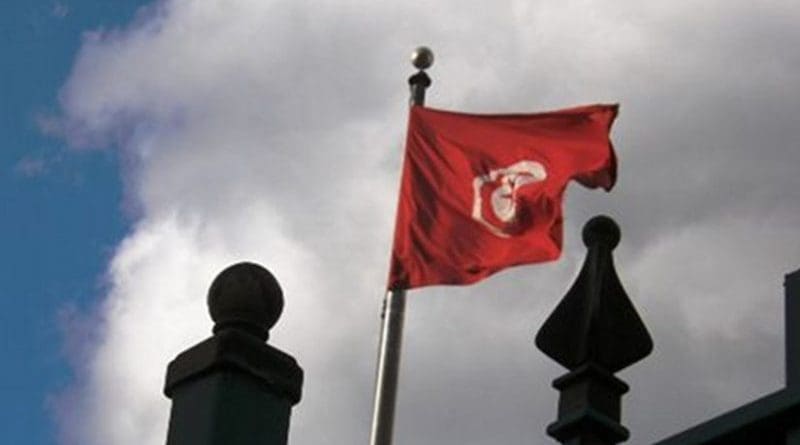Arab Spring Forges New Bonds Between North African Neighbors
By VOA
By Lisa Bryant
The popular uprisings in Tunisia and Libya are reshaping ancient bonds between these North African neighbors. Tunisians who once flocked to Libya for jobs are now providing food and shelter to war-torn Libyans, and possibly a delivery route for rebel weapons.
The Dehiba-Wazin desert border separating Tunisia and Libya is bustling on a scorching afternoon. Cars and trucks cross over, crammed with fruit, milk and other supplies that are increasingly hard to find in war-torn Libya.
An ambulance heads the other way, bound for the nearest Tunisian hospital, an hour-and-a half drive away.
Tripoli, where diplomatic negotiations to end the Libyan conflict are intensifying, lies 260 kilometers to the northeast. Tunis is a 500 kilometer drive due north.
That’s where Libyan Ayooub Maslati, 23, has come from. A few months ago, Maslati worked as a marketing manager in Tripoli. Now he lives in Tunis, driving to Libya a few times a month to deliver what he says is humanitarian assistance to the rebels.
“[I help provide] aid supplies for families – like food, milk, water. The basic needs,” Maslati noted.
Maslati smiles but doesn’t answer when asked about weapons reportedly flowing across the border. Tunisian border guards don’t appear to be checking the vehicles crossing very carefully.
“For aid, they don’t ask because they understand the situation. But for the guns, I don’t have [any] idea,” Maslati added.
Tunisian police commissioner Kamel Debichi says thousands of people cross the border daily. He says it’s up to customs officials – not border police – to check for arms. Debichi adds that border officials may have found a few weapons here and there, items Libyans must have forgotten in their car trunks.
Libyan rebels control the other side of the border crossing. They even have a spokesman, Nader Ayousef, who studied in the United States.
“Welcome guys. Welcome to our Libya hora [free]… this is Wazin border gate, which has been captured by the Gadhafi troops in late March and then been liberated by the pro-democracy fighters here,” said Ayousef. “And we are still here, keeping this humanitarian border.”
Rebels clad in jeans and combat fatigues smoke and chat. Nearby Wazin village is deserted. Its residents fled weeks ago. The hundreds of opposition fighters holed up in the nearby Western Mountains clash frequently with Gadhafi loyalists.
“Our fighters [are in] the mountains [are] just in [a] defense position, just defending you know. [They] haven’t got much power, much modern weapons to attack those [Gadhafi] troops, just defending,” Ayousef explained.
Shelling by Libyan troops has strayed over the border, reaching the Tunisian town of Dehiba three kilometers away.
Resident Islam Ben Hamed, who chats with friends at a cafe, says nobody has died, but people are scared.
“We hear… the morning and every night – it make you crazy,” said Hamed.
More than 1,000 Libyans have also fled to Dehiba. They now account for about 15 percent of the population. Some are staying at a refugee camp run by the United Arab Emirates. But many residents have opened their homes to Libyans like Soraya, 30, and her family.
Soraya says she thanks Tunisians for their welcome. She feels they are like her second family.
Dehiba’s residents are coming to grips with two revolutions, their own popular uprising in January and now the Libyan one. The unrest has brought many changes, both good and bad.
Islam Ben Hamed, for example, lost his job working at a Tunisian resort hotel this year because tourism plummeted after the revolution.
But the Libyan conflict has brought work to his younger brother Lotfi as a border monitor for the United Nations High Commissioner for Refugees (UNHCR). Recently, Lotfi Ben Hamed has seen more and more Libyans returning home.
“They feel more familiar with what’s going on and they’re going back because they’re more comfortable and more secure,” Lotfi Ben Hamed noted.
Lotfi Ben Hamed says Tunisians are still emerging from their own uprising. Now, they’re dealing with Libya’s. He says he’s just trying to move forward and is hoping for the best.

